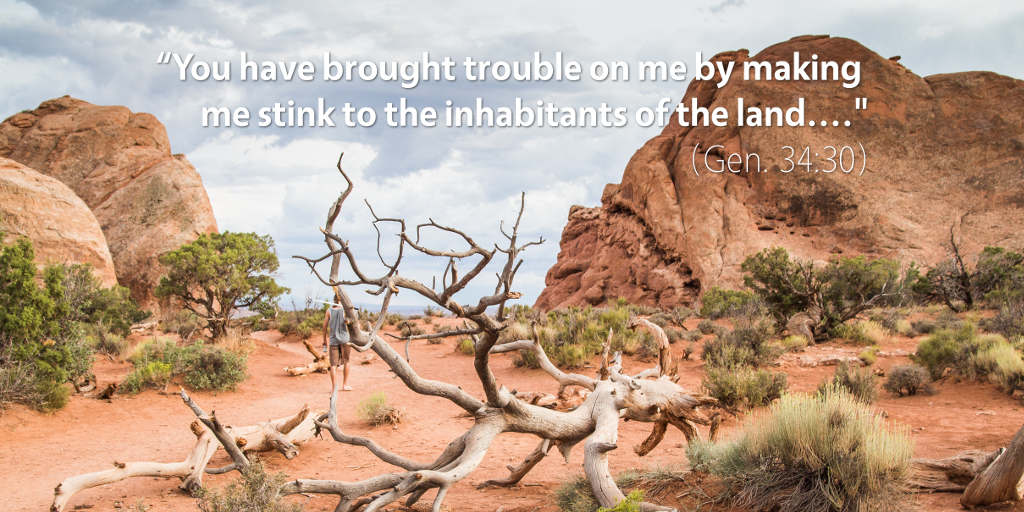Bible Readings for February 2nd
Genesis 34 | Mark 5 | Job 1 | Romans 5
The chosen family does not come away from Genesis 34 looking very good. In the wake of a horrific tragedy—the rape of Dinah by Shechem the Hivite—Jacob and his sons respond poorly, but in different ways.
Simeon and Levi are rightfully outraged at the defiling of their sister, but they wrongly take matters into their own hands. Worse than simply bringing direct vengeance against Shechem, they extend their vengeance to the entire group of Hivites under Shechem’s father, Hamor, who had done nothing wrong. And still worse—they execute their vengeance through deceitfully using circumcision as their weapon to incapacitate the men in the city, making a mockery of God’s covenant sign in the process. They take up the scheming of their father, Jacob, and put it to a brutal use.1
Jacob’s response is woefully passive. Rather than taking action by demanding that justice be served through lawfully punishing Shechem, Jacob simply speaks with Hamor, apparently willing to give his daughter away in marriage to her rapist—and even willing to give her to a pagan Canaanite living in the land. When he discovers the treachery of his sons Simeon and Levi at the end of Genesis 34, he is furious with them, but he has no answer for their question: “Should he treat our sister like a prostitute?” (Gen. 34:31).
Although Simeon and Levi were wrong to deceive the Hivites and to execute them in cold blood while they were still in great pain from their circumcision, their words stop Jacob. We are not directly told why he doesn’t do or say anything, but it seems he is primarily controlled by fear, based on what he says against Simeon and Levi in Genesis 34:30: “You have brought trouble on me by making me stink to the inhabitants of the land, the Canaanites and the Perizzites. My numbers are few, and if they gather themselves against me and attack me, I shall be destroyed, both I and my household.” That is the calculated cowardice of a man who has strategically acted for his entire lifetime to preserve his own best interests—and not what is right.
Jacob, however, is correct—Simeon and Levi have brought jeopardy against Jacob’s entire family in the land. Later on in the Bible, when Joshua leads the people of Israel back into the promised land of Canaan, there are still Hivites living in the land (Josh. 3:10). The tables are turned, however, because all Israel needs to be circumcised at once, having been uncircumcised the whole time the nation had been wandering in the wilderness under Moses (Josh. 5:1–9). Would the Hivites discover them and exact their revenge?
No—even in that situation, God again protects his people. And he does it not because their record is spotless but purely out of his free grace.
In what ways have you deserved much worse than you received?
1 John Sailhamer, The Pentateuch as Narrative: A Biblical-Theological Commentary (Grand Rapids, MI: Zondervan, 1992), 201.
Podcast: Play in new window | Download (5.1MB) | Embed
Subscribe: Apple Podcasts | RSS | More

Scripture quotations are from The Holy Bible, English Standard Version copyright © 2001 by Crossway Bibles, a division of Good News Publishers. Used by permission. All rights reserved.


